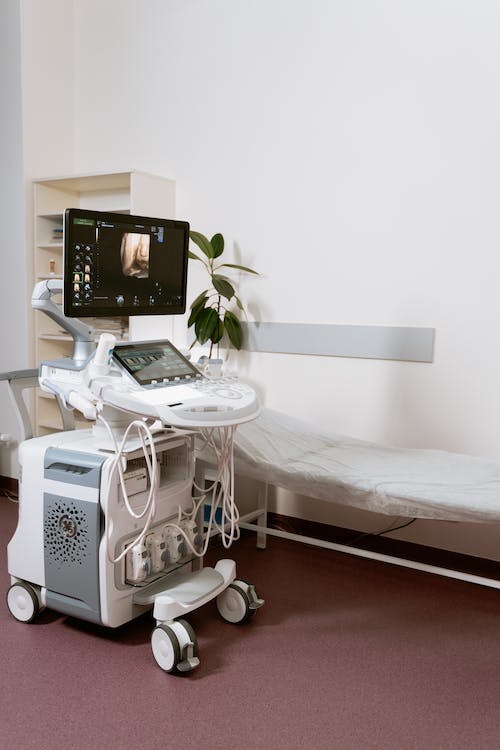Although there are several causes of ectopic pregnancy, this complication can occur in any pregnant woman.
In another way, a woman who has one or more of these common causes of ectopic pregnancy is a woman at higher risk of having an ectopic pregnancy than other healthy women.

What is an ectopic pregnancy?
An ectopic pregnancy is defined as a pregnancy that happens outside of the uterus. That’s why it is also called extra uterine pregnancy. This occurs when a fertilized egg implants in the wrong location where it can’t support its growth.
An ectopic pregnancy most often happens in the fallopian tube (a structure that connects the ovaries and the uterus). The majority of ectopic pregnancies happen there (about 90%). Ectopic pregnancies rarely occur in the ovary, abdominal cavity, or cervix. Pregnancies can’t continue if they’re ectopic because only the uterus is meant to carry a pregnancy.
Ectopic pregnancies can become life-threatening, especially if the fallopian tube ruptures, which may cause severe bleeding and infection, and sometimes lead to death if not controlled early. That’s why It is considered a medical emergency.
Causes of ectopic pregnancy
How common are ectopic pregnancies to occur?
Ectopic pregnancy is not very common, especially in healthy women. It has a prevalence of about 2% of all pregnancies.
What are the risk factors contributing to an ectopic pregnancy?
All sexually active women are considered at risk of an ectopic pregnancy to occur. However, its prevalence may increase if any of the following causes of ectopic pregnancy appear:
- Maternal age of older than 35 years is considered one of the most common causes of ectopic pregnancy.
- History of pelvic or abdominal surgery, or multiple abortions
- History of pelvic inflammatory disease (PID)
- History of endometriosis
- Conception occurred By tubal ligation or intrauterine device (IUD)
- Conception aided by fertility drugs
- Maternal smoking
- History of previous ectopic pregnancy
- History of infertility treated with "in vetro fertilization (IVF)"
- History of sexually transmitted diseases (STDs), such as chlamydia or gonorrhea.
- Fallopian tubes having structural abnormalities.
If any of these causes of ectopic pregnancy are present, you have to consult your gynecologist to minimize the risks for future ectopic pregnancies.

Symptoms of ectopic pregnancy
Early signs of ectopic pregnancy can’t be distinguished from early signs of normal pregnancy, including a missed period, vaginal bleeding, belly pain, nausea, and breast soreness. The following symptoms are more common to occur in an ectopic pregnancy and can indicate a medical emergency condition:
- Severe pain in the abdomen, and pelvis, and may reach the shoulder or neck
- Unilateral severe pain in the abdomen
- Vaginal spotting or bleeding
- Dizziness or fainting
- Rectal pressure
Symptoms of an ectopic pregnancy usually develop early (between the 4th and 12th weeks of pregnancy). If you’re pregnant and have any of these symptoms, please contact your doctor as soon as possible.
What are the complications of an ectopic pregnancy
An ectopic pregnancy is a medical emergency because the uterus is the only organ that can hold a growing fetus. The fallopian tubes aren’t as flexible as the uterus. They can rupture once the fertilized egg develops, which may cause severe, life-threatening internal bleeding.
An ectopic pregnancy needs to be treated early to avoid injury to the fallopian tube and other organs, internal bleeding, loss of consciousness, and death.

Diagnosis and Tests
Most people don’t know that their pregnancy is ectopic until they visit their pregnancy care provider for a prenatal appointment, blood test, or ultrasound examination. Your provider can suspect an ectopic pregnancy if you have one or more of the previously mentioned causes of ectopic pregnancy.
To diagnose an ectopic pregnancy, your gynecologist will perform several tests. This may include a pelvic ultrasound examination and confirmation of pregnancy. These tests include:
- A urine test
- A blood test: to see the amount of the pregnancy hormone human chronic gonadotropin (HCG) in the body. A low amount may indicate an ectopic pregnancy because HCG levels increase dramatically when a fertilized egg implants in the uterus.
- An ultrasound examination: to see whether the fertilized egg has implanted in the uterus or not.
Once the provider has confirmed an ectopic pregnancy and determined where the fertilized egg has implanted, a treatment plan should be started. An ectopic pregnancy is very critical, and early intervention is very important.
When can an ectopic pregnancy be diagnosed?
Ectopic pregnancy is typically discovered early in pregnancy. Healthcare providers usually diagnose ectopic pregnancies in the first trimester (the first 12 weeks of pregnancy). However, most people discover it around eight weeks of pregnancy especially, if one or more of the causes of ectopic pregnancy is present.
Treatment and management of ectopic pregnancy
Ectopic pregnancies can be treated either with medication or surgery. It depends on how fatal the condition is.
Methotrexate for ectopic pregnancy
Methotrexate is a medication used in the treatment of ectopic pregnancy. Its mechanism is to stop the fertilized egg from growing and ending the pregnancy. The medication shouldn’t damage the fallopian tubes.
This medication can’t be used if the fallopian tube has already ruptured as it will be no longer effective and to avoid further complications.
The route of administration of methotrexate is usually through intramuscular injection. It can be a single or multiple injection according to the status of the patient.
This option is less invasive than surgery, but it does require follow-up appointments so the provider can monitor the HCG levels by blood tests. It’s important to have consistent follow-ups with this medication.
In rare cases, a second injection of methotrexate is required if HCG levels don’t decrease enough with one dose.
Surgery for ectopic pregnancy
If the fallopian tube has already ruptured, medications wouldn’t be the treatment of choice for such cases. The health care provider will go for surgical intervention to remove the ectopic pregnancy.
It is considered an emergency surgery and a life-saving treatment. The procedure is usually done laparoscopically (through several small incisions in the abdomen) under anesthesia.
The surgeon may do an excision for the entire fallopian tube with the egg inside it or remove the egg only from the tube while preserving the fallopian tube.
Prevention
Unfortunately, ectopic pregnancy can’t be prevented. However, the causes of ectopic pregnancy could be reduced by following good lifestyle habits.
These include avoiding smoking, maintaining a healthy weight, and preventing any sexually transmitted infections (STIs) and professional consultation for early diagnosis.
Summary
An ectopic pregnancy is defined as a pregnancy that happens outside of the uterus. That’s why it is also called extra uterine pregnancy. This occurs when a fertilized egg implants in the wrong location where it can’t support its growth.
Read more about:


You must be logged in to post a comment.